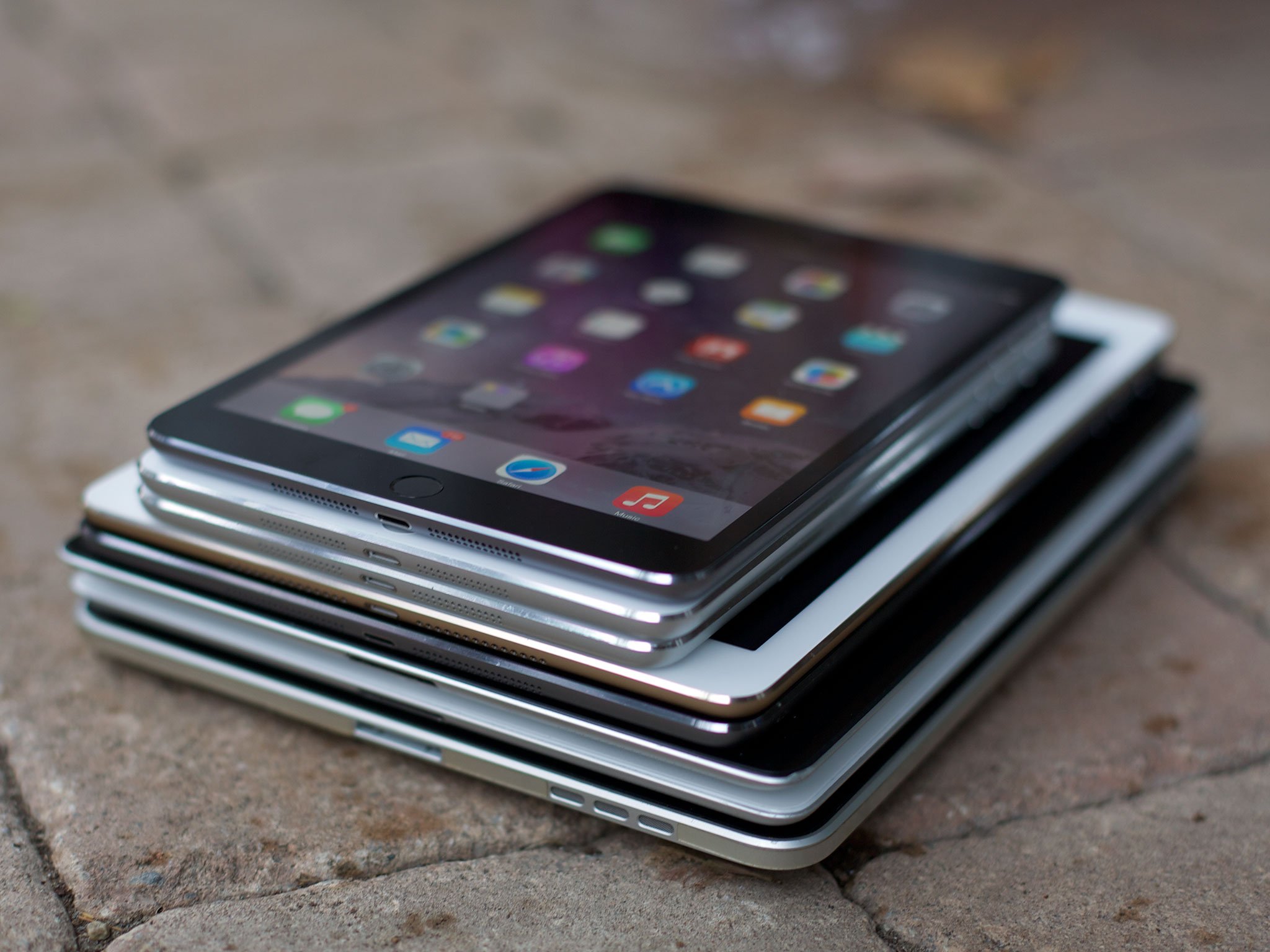The future of iPad

At that time, netbooks had a strong market presence. Apple was pressured to respond but the company was loath to embrace the chintzy plastic, slow performance, low battery life and particularly the cramped keyboard of the netbook's heyday. Indeed, the iPad was to the netbook what the iPhone was to the BlackBerry -- a rejection of compromised input at the expense of software-defined touch display.
Steve Jobs called out some of the tasks at which the iPad would excel -- e-mail, the Web, video, games and books. Of course, that was just the beginning. Tens of thousands of apps appeared that took advantage of the iPad's increased display real estate and helped it to maintain significant market share advantages over less expensive competitors.
But it's classic business wisdom that companies and products that live "in the middle" tend to get crushed. That certainly happened to netbooks. And now, five years after its introduction, the iPad is beginning to feel the pressure of the growing iPhone 6 Plus from below and the incredible shrinking MacBook from above. With the new 12" MacBook, the competition has become fiercer than ever. The laptop is "inspired" by the iPad the way the body snatchers were inspired by their humans.
How, then, can the iPad fight back against its friendly (and not-so-friendly) competitors? Microsoft decided long ago that the tablet's fate is to be some component of a more capable computing experience. With every iteration, its Surface tablet has become less iPad-like and more laptop-like. This is in part due to Microsoft's failure to attract many apps to its touch environment, a fate that doomed the first two Surface's based on Windows RT.
Surface Pro 3, however, boasted a larger (12") display and dropped the touch cover in favor of one with real keys. At its introduction, Microsoft spoke about the effort that went into making the product's kickstand-balanced form easier to use on one's lap. This is a tablet that only a company with no laptop could sell. Indeed, owing in part to its price, Microsoft compared the Surface Pro more to the MacBook Air than the iPad.
Apple management continues to predict that the tablet has a bright future. It's not too surprising that Tim Cook, who has made pushing into enterprise technology a higher priority than Steve Jobs, has noted the suitability of the iPad to corporate apps. This can be a lucrative market for Apple due to the high average volumes, but the tablet as a work tool is a notion that has been around since the earliest tablet PCs and enterprise distribution doesn't play to its retail strengths..
Apple also recently embarked with its partner IBM on an initiative to make iPads available to Japanese seniors. The simple operation of iPads has made it a favored tool among technology neophytes whether they be four years old or 104 years old. But that simplicity is also a bit of a liability. With a product as simple as the iPad, there doesn't seem to be many directions Apple can take it. There are a few directions that seem unlikely.
iMore offers spot-on advice and guidance from our team of experts, with decades of Apple device experience to lean on. Learn more with iMore!
Unlike Microsoft, Apple's grasp of the purity of purpose leaves little hope/fear of the company creating some kind of 2-in-1 Mac that features a detachable iPad-like display. It also seems unlikely that Apple will add windowing support to iOS. That said, better keyboard support in the operating system would be helpful when the device is paired with a Bluetooth keyboard as it often is.
Apple seemed to be dragged into the smaller end of the tablet with the release of the iPad mini. The pricing of that product has been attacked aggressively by cheap 7" Android tablets. In typical fashion, Apple hasn't resorted to sacrificing quality to compete on price. On the other hand, the last upgrade to the iPad mini was nominal with the lead feature being the addition of Touch ID.
That leaves at least three rumors would have different implications should they prove true. Let's take them from most impactful to least impactful.
- Going big. There have been many rumors that Apple will release a larger iPad, an iPad Pro. That might make sense. There are many tasks for which the iPad is used -- such as reading magazines and Web pages -- for which a larger screen would be helpful. Apple competitors such as Lenovo, Samsung and of course Microsoft have all dabbled in 12" tablets. While their sales have been lower than that of smaller models, they offer the opportunity for better margins as well as allowing the iPad to compete a bit more against the MacBooks with their larger display. These could also play well to Apple's enterprise push in displaying more content at once.
- Pen again. Both Samsung and Microsoft have developed stylus options for their tablets. At the introduction of the iPhone, which laid the interface framework for the iPad, Steve Jobs derided the stylus. Apple, after all, had had some experience with such input devies with the Newton. While Apple could do a better job of integrating stylus input into the iOS user interface than Microsoft and certainly Samsung have, incorporating a stylus poses a few challenges -- they are great for drawing apps but not many others and they need to be stored somewhere, a particular hassle if Apple is to maintain interface consistency with the iPhone. Besides, the essence of the iPad is to be free of external input conveyances such as keyboards and mice. Indeed, with Apple now pushing Force Touch as the first real addition to the iOS input repertoire since its unveiling eight years ago, it seems like bad timing to introduce pen input.
- ** Tapping into feedback.** First seen in the Apple Watch and recently transplanted to the MacBook's trackpad, Apple's Taptic engine provides feedback that could be use to enhance the glass typing experience on the iPad. That would be a welcome addition but not a game changer.
None of these proposed changes are enough to meaningfully stave off consumers' appetites shifting more toward larger phones and sleeker laptops, a trend that has Apple crying all the way to the banks that have lower valuations than it does. But at least a larger screen option could add some capability, excitement and differentiation to the tablet's declining fortunes.

